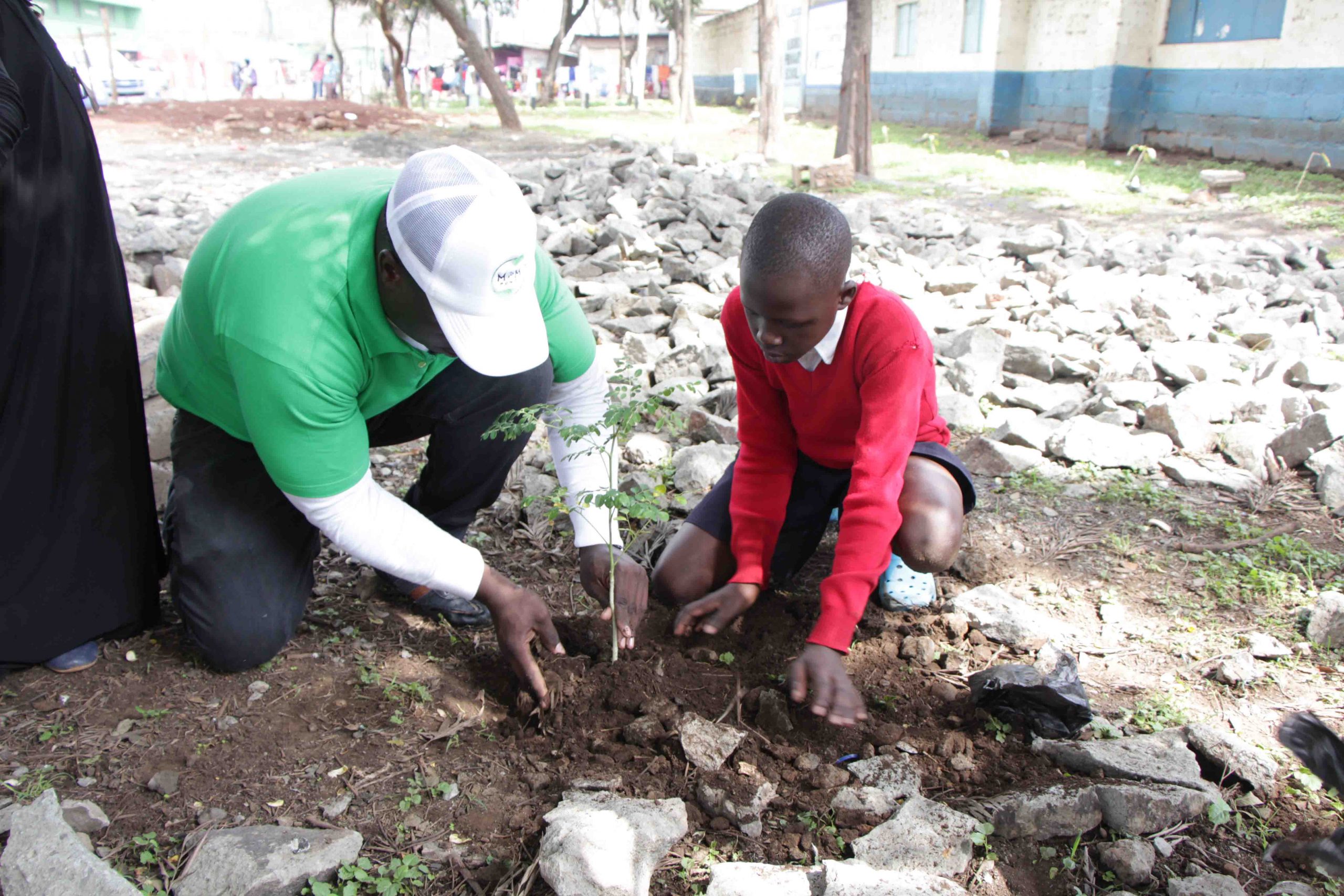
17 Nov Nurturing Green Leaders Today
The task of preparing our young generation for our constantly changing world requires the adaptation into our education system teaching methodologies that can help students understand the dynamic and complex challenges that these changes exhibit and teach them practical skills and critical and creative thinking needed to be problem solvers and informed decision makers.
Education for sustainable development (ESD) in Kenya was introduced to help the Kenyan child develop the attitudes, skills, and knowledge to make informed decisions for the benefit of themselves and society hence producing a competent learner. While many nations around the world have embraced the need for education to achieve sustainability, only limited progress was made at any level. Learning for sustainable development constitutes a trigger for innovations in education and should be supported.

School children from Mathare during a tree planting session
The need to take care of the environment is more urgent today than it was 10 years ago and the sooner everyone comes on board, the better. The future belongs to us and our children and that is why we need to bring them on board. The conversation about sustainability should begin right from school. When children grow up learning about a certain concept, they are bound to implement it because they understand the importance of it all.
Society today should be concerned with saving the environment and sustainable living. It is now common to find companies or organizations going green and producing eco-friendly products as a way of saving energy or protecting the environment. Schools should not be left behind either because it is our collective effort that will provide a better environment for the future generation.

A pupil being shown how to plant a tree
There are benefits for schools going green. A product as small as an eco-friendly pencil being adopted by schools can make a big difference in the way environmental footprints of schools are viewed by society generally. It is important for schools to implement environmental education programmes that encompass school environmental sustainability projects and practical actions. These projects and actions should be aimed at solving environmental problems, creating awareness, promoting hands-on experiential learning and complementing and reinforcing classroom learning by enriching the existing topics that are usually covered theoretically with practical examples.
The idea with such an approach is to create environmental awareness, solve environmental problems and promote hands on learning from a tender age. This will then inspire teachers and students to take personal responsibility for improving the environment in school, at home and in the community in general.



No Comments